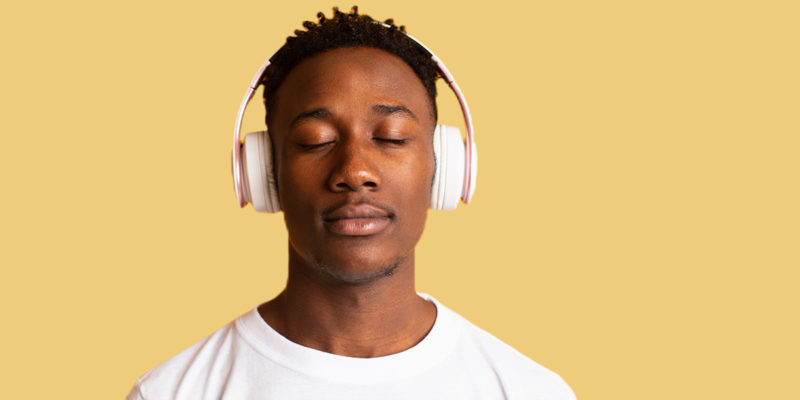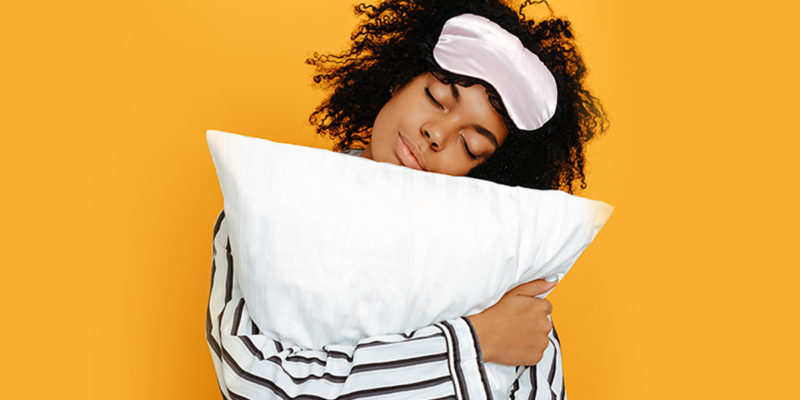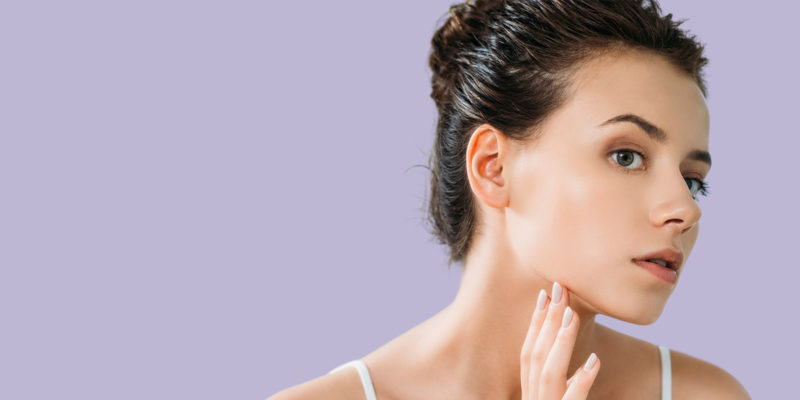The Surprising Links Between Exercise And Insomnia

Chronic insomnia is an unfortunate condition that affects countless people worldwide. Men and women, young and old – it seems that no one is immune.
Sufferers often have trouble falling asleep, and if they do manage to drift off, their sleep is interrupted several times throughout the night.
Lying there unable to sleep when you know you need to be well rested can be extremely frustrating, especially if it is a recurring theme. Research has shown that every year, approximately 30-40% of Americans suffer from some form of sleep insomnia, a result of all sorts of physical, emotional, and mental stressors.
And a lack of sleep goes far beyond just being irritating – it negatively affects your health. Insomnia can lead to:
- Poor concentration levels
- Irritability
- Increased stress levels
- Depression
- Heart disease
Here’s the good news I want you to remember: there are a number of ways to help combat the condition.
Discover in 7 questions why you have problems sleeping at night, if you have insomnia, and uncover proven ways to sleep better. Take The Sleep Quiz Now!
One of the most highly recommended is movement.
The NHS suggest regular exercise as one of their 10 tips to beat insomnia. We’ve also explored various movement techniques on How to Treat Insomnia Naturally.
In this article we’ll explore the links between exercise and sleep, so you will have all the information you need to start bringing some more movement into your everyday life, hopefully leading to a good night’s rest.
Remember: move your body now so you can rest your body later.
De-Stress With Exercise
It is commonly known that stress is one of the leading causes of insomnia. It is in fact at the root of many chronic illnesses and diseases.
Our modern world is full of potential stressors, and our bodies and minds are not always that great at handling them. Traffic jams, upcoming presentations, and deadlines activate the same fight or flight response we would use in the wild if being approached by a deadly animal.
A surge of stress hormones floods though the body, readying us to take action, but most of the time we don’t.
We carry on in our everyday lives, fretting over the past, and worrying about the future.
The stress hormone levels remain elevated, causing inflammation and interrupting our body’s ability to drift off to sleep.
All of this to say, it makes sense that in order to combat insomnia, we should try to deal with the root cause. By reducing our stress levels, we’ll no doubt be on our way to improved sleep quality.
Bonus: Download This 7-Day Sleep Reset that will show you exactly how to tackle your worst sleep problems quickly.
Which brings us back to exercise!
Along with meditation, exercise is one of the best-known stress busters. As Mayo Clinic explains, there are a number of de-stressing benefits that come from moving your body.

For starters, exercise stimulates the release of your brain’s feel-good neurotransmitters, called endorphins (and who doesn’t want to feel good?). This is often recognized as the runner’s high, but it can be experienced after any physical activity. What makes this even greater is one of these neurotransmitters is serotonin, which is involved in regulating the sleep cycle.
Exercise is also a kind of moving meditation. Taking part in sports brings you into the present moment. You have to fully concentrate on the task at hand. You’re forced to empty your mind and forget all about that looming deadline or the argument you just had.
From personal experience, I know that there have been many times when I have started a long run with thoughts racing in my head, but after half an hour or so everything seems to settle.
If you practice enough, this mindfulness and awareness can transfer into your everyday life, significantly reducing your levels of stress.
Sleepy Exercise Option #1: Cardio
Exercise is great in that there are so many forms to choose from, and they can all benefit your health (and your sleep) in different ways. It’s important to find something that’s right for you – something that fits in with your way of thinking and your schedule, and allows you to get the most enjoyment and fulfillment.
Low intensity aerobic activities like walking, running, swimming, cycling and other types of cardio promote a healthy cardiovascular system, and they might help you get a better night’s sleep.
- A 2010 study showed that sedentary adults who introduced some form of aerobic exercise four times a week improved both their sleep quality and duration.
- Another study in 2011 looked at a nationally representative sample of more than 2,600 men and women. The results showed that 150 minutes of moderate activity a week provided a 65% improvement in sleep quality. People also reported that they felt less tired during the daytime, compared to those who did not exercise as often.
150 minutes is only 2 ½ hours. So you might want to lace up those old running shoes and get out for a gentle jog!

Sleepy Exercise Option #2: Speed Things Up
Low intensity movement is all well and good, but sometimes you can really benefit from turning things up a notch getting a real sweat on. Higher intensity activities such as weight lifting, interval training, and martial arts have been shown to significantly improve sleep quality in some.
Research suggests high intensity sessions can sometimes be even more effective than low intensity exercise. Exerting your body close to its maximum potential can leave you feeling completely exhausted and longing for the pillow.

One study found that only 3% of vigorous exercisers had “very bad” sleep compared to 14% of non-exercisers. And over a quarter of vigorous exercisers had “very good” sleep.
It’s not known exactly why intense exercise helps to promote sleep, but there are a few theories. Aside from stress reduction, the National Sleep Foundation suggest that temperature regulation may play a role:
“Although the exact mechanisms are unknown, there are many possibilities for how exercise may reduce insomnia severity. One way may be by the body-heating effects of exercise, especially when performed in the afternoon or later. Exercise triggers an increase in body temperature, and the post-exercise drop in temperature may promote falling asleep.”
Higher intensity exercise typically causes more extreme changes in temperature than lower intensity work, which may explain why it sometimes allows for even better sleep.
We know it would be wise to include some form of high intensity exercise into your schedule, but make sure you…
Get Your Timing Right
The extreme nature of high intensity exercise may not be great for everyone.
Some find that exercising intensely (especially near bedtime) can have the opposite effect and actually keep them from getting to sleep.
Dr. Eve Van Cauter, director of the University of Chicago’s Sleep, Metabolism and Health Center explains:
“Strenuous exercise beyond the usual for a given individual does activate stress responsive systems, including the release of cortisol in the evening and adrenaline and it is well known that difficulties falling asleep and staying asleep may occur.”
Once again we are back to that fight or flight mode/raring to go dilemma. Which is exactly what we are trying to prevent.
So instead of hitting it hard in the gym late in the evening, you might want to…
Get Outside Early
Our bodily processes are regulated by our internal circadian clock, which controls the flow of various hormones, particularly cortisol (the stress hormone) and melatonin (the sleep hormone).
When cortisol is at its peak (during the middle of the day), we are the most active and alert.
When melatonin levels are highest (in the middle of the night), we’re the best prepared to rest and digest.
When your body clock is on point, you’re able to sleep well at night and perform well during the day. Unfortunately, with the huge number of stressors ever present in the modern day world, our circadian clocks often fall out of rhythm.

There are, however, many ways you can put things back on track. One of the easiest methods is to expose yourself to sunlight early on in the day. As the Paleo Mom explains:
“One of the best ways to set your circadian clock is be exposed to bright (ideally sunlight) during the day, but be in the dark at night. In fact, sunlight exposure during the day is probably the single most important thing you can so to support the normal production of melatonin in the evening.”
It may be worth setting your alarm a little earlier and getting outside in the morning to do your exercising. Maybe that means some light stretching or walking if you are not up for a full workout – anything that get’s your body mobile and your eyes and skin exposed to a little sunlight.
Conversely, in the evening it may be wise to dim the lights, and allow your body to naturally wind down. Maybe invest in an eye mask for sleeping, or a blackout blind to make it as dark as possible.
Recovery Is Key
There is definitely such thing as ‘too much of a good thing.’ As the old saying goes, the poison is in the dosage. Even water is lethal if you try to drink too much!
The same is true for exercise. While regular movement certainly does have its sleeping benefits, overdoing it can have drawbacks that are just as significant.
Signs of overtraining include irritability, a weakened immune system, anxiousness, and you guessed it – reduced sleep quality.
To up your chances of beating insomnia, ensure that you’re recovering from your training sessions properly. Here are some of the most important things to consider:
- Your diet: Are you eating a diet based on whole, nourishing plant foods that help your body recover and rejuvenate? Try these 10 top foods to eat (and avoid) for insomnia
- The type of training: Are you mixing up your training, trying different activities to reduce the risk of burning out?
- Rest time: Are you scheduling in enough down time for your body and mind to recover? The American Council on Exercise suggests waiting until your soreness is gone before exercising again.
If you want long-term health and good sleep quality, remember that recovery is just as important as the exercise itself.
Healthy Body Composition = Healthy Sleep
The composition of your body can also have a significant impact on the quality of your sleep.
People who are overweight or obese are carrying an excess of body fat. As well as appearing in the obvious places – around the face, the arms, and the belly – fat can build around in the airways, restricting breathing patterns. This can lead to snoring and sleep apnea (a condition where the airway becomes partially blocked), leading to breathing issues and sleep disturbance.
Obesity is also linked with restless leg syndrome (RLS), a condition where the person feels the need to move their legs whilst in a resting position to alleviate discomfort.
As the Sleep Foundation explains:
“Symptoms of RLS are most severe in the evening and nighttime hours and can profoundly disrupt a patient’s sleep and daily life.”
Coupled with a healthy diet, regular exercise is an effective way to lose unwanted weight and reduce the risk of developing sleep apnea and restless leg syndrome.
It is also important to integrate movement into your everyday life if you want your weight loss to be lasting and sustainable. This might mean taking the stairs whenever possible, installing a standing desk at work, or walking instead of taking the car to the shops.
Exercise and Your Zzzzz’s
Here is what it all boils down to: do what you can to up your movement quota for the day, for better health, and better sleep!
Not only should your ability to fall asleep and stay asleep improve, but you should also feel better while you are awake. It’s a win/win. So join the gym, get a workout buddy, take a jog, use the pool for swimming (not just sunbathing), find a yoga studio, or pick up martial arts.
And then… sleep!
Sources
https://eunatural.com/14-ways-to-sleep-better-naturally/
https://www.nhs.uk/Livewell/insomnia/Pages/insomniatips.aspx
https://eunatural.com/how-to-treat-insomnia-naturally/
https://www.ncbi.nlm.nih.gov/pmc/articles/PMC3538178/
https://www.ncbi.nlm.nih.gov/pubmed/12480495
https://www.mayoclinic.org/healthy-lifestyle/stress-management/in-depth/exercise-and-stress/art-20044469
https://en.wikipedia.org/wiki/Serotonin
https://www.northwestern.edu/newscenter/stories/2010/09/aerobic-exercise-relieves-insomnia.html
https://www.sciencedirect.com/science/article/pii/S1755296611000317
https://sleepfoundation.org/sites/default/files/RPT336 Summary of Findings 02 20 2013.pdf
https://sleepfoundation.org/sites/default/files/RPT336%20Summary%20of%20Findings%2002%2020%202013.pdf
https://sleepfoundation.org/ask-the-expert/how-does-exercise-help-those-chronic-insomnia
https://en.wikipedia.org/wiki/Sleep_hygiene
https://www.outsideonline.com/1784661/can-hard-workout-cause-insomnia
https://www.nigms.nih.gov/education/pages/Factsheet_CircadianRhythms.aspx
https://www.thepaleomom.com/2014/02/regulating-circadian-rhythm.html
https://www.mensfitness.com/training/build-muscle/12-signs-youre-overtraining
https://herohealthroom.com/plant-based-diet/
https://eunatural.com/10-top-foods-to-eat-and-avoid-for-insomnia/
https://www.acefitness.org/blog/3565/recovery-redefined-how-much-rest-you-actually-need
https://sleepdisorders.about.com/od/sleepandgeneralhealth/a/How-Does-Being-Overweight-Affect-Your-Sleep.htm
https://www.ninds.nih.gov/Disorders/Patient-Caregiver-Education/Fact-Sheets/Restless-Legs-Syndrome-Fact-Sheet
https://sleepfoundation.org/sleep-disorders-problems/restless-legs-syndrome






